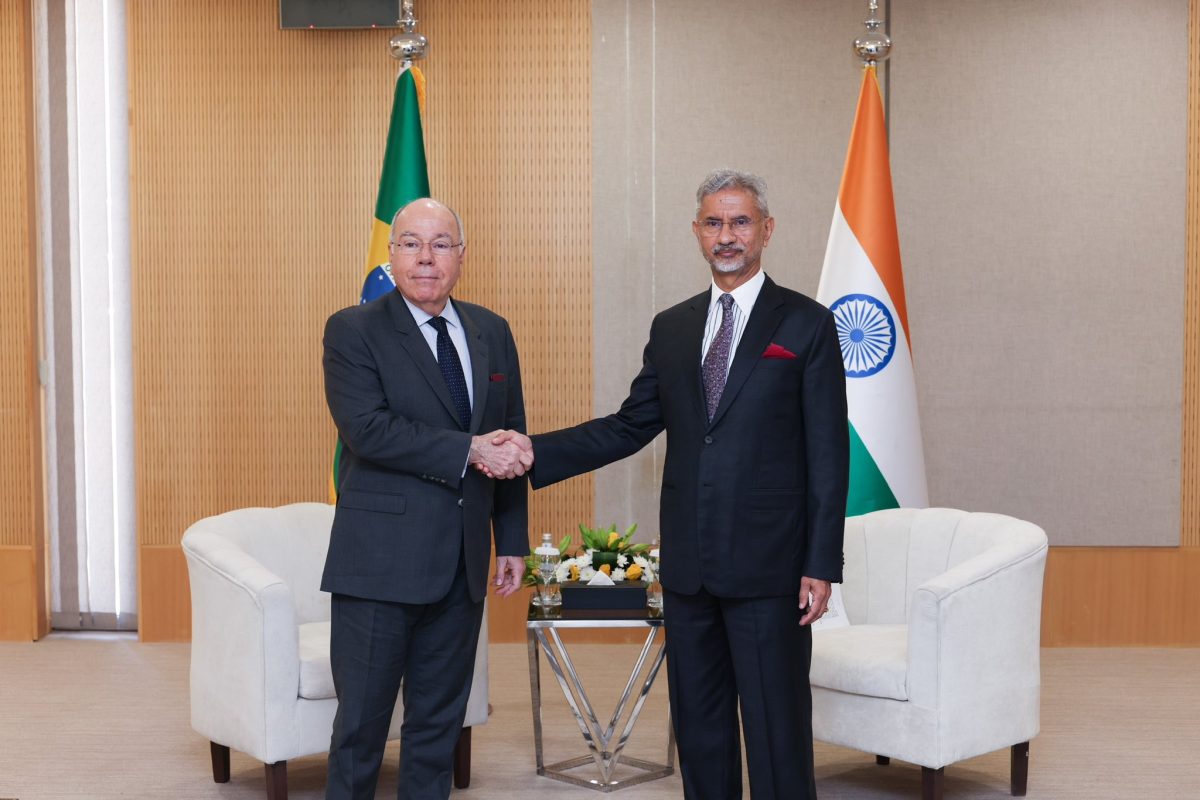S. Jaishankar holds talks with foreign ministers of GCC countries and Brazil on sidelines of GCC Meeting
Reviews the progress in bilateral relations and shared perspectives on both global and regional matters.
NEW DELHI: External Affairs Minister Dr. S. Jaishankar held a series of bilateral meetings with foreign ministers from Gulf Cooperation Council (GCC) countries and Brazil on the sidelines of the inaugural India-GCC Foreign Ministers’ meeting in Riyadh. These discussions covered a wide range of bilateral, regional, and global issues.
During his meeting with Saudi Foreign Minister Faisal bin Farhan, Dr. Jaishankar reviewed the progress in bilateral relations and shared perspectives on both global and regional matters.
He also expressed his eagerness to welcome his Saudi counterpart to India in the near future.Dr. Jaishankar’s discussion with Kuwaiti Foreign Minister Abdullah Ali Al-Yahya built upon their recent productive meeting in Kuwait.
They explored ways to further advance bilateral ties, with a focus on convening an early meeting of their Joint Commission. In talks with Bahraini Foreign Minister Dr. Abdullatif bin Rashid Al Zayani, both sides positively evaluated their bilateral relationship. They acknowledged the significant contributions of the Indian community in Bahrain and agreed to hold an early meeting of their Joint Commission.A warm meeting with Omani Foreign Minister Badr Albusaidi centered on further strengthening the strategic partnership between India and Oman.
Dr. Jaishankar also met with Brazilian Foreign Minister Mauro Vieira. Their discussions covered key multilateral issues, including G20, BRICS, and the ongoing Ukraine conflict, highlighting India’s engagement beyond the Gulf region. A GCC-Brazil meeting with Brazilian Foreign Minister Vieira is also taking place concurrently.
These diplomatic engagements underscore India’s growing strategic importance and its efforts to strengthen ties with key global partners. The meetings spanned topics ranging from bilateral cooperation and regional stability to global governance and conflict resolution.


